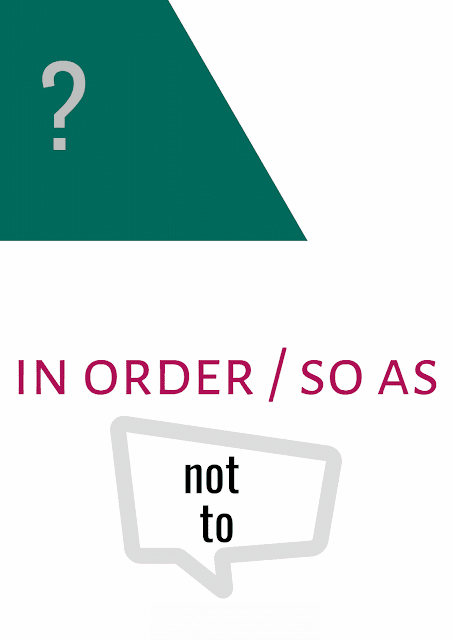- He got up early in order to have time to pack .
- I watched him in order to know more about him.
- I moved to a new flat so as to be near my work
In order to & so as to are normal before negative infinitives.I'm going to leave now, so as not to be late. (NOT...
A for-structure can be used to talk about a purpose that involves action by somebody else.
- I left the door unlocked for Harriet to get in.
The structure for + noun/pronoun + infinitive is very common in English. It is used when an infinitive needs its own subject. Compare:
- Ann will be happy to help you. (Ann will help.)
- Ann will be happy for the children to help you. (The children will help.)
- My idea was to learn Russian.
- My idea was for her to learn Russian.
- To ask Joe would be a big mistake.
- For you to ask Joe would be a big mistake, (NOT
You to ask Joe would be...)
Note that the subject of the infinitive is the object of the preposition for. Object forms of pronouns are used.
- Ann will be happy for them to help you. (NOT .. .
for they to help you.)
The structure can also be used after nouns in expressions with meanings similar to the adjectives listed above. Examples are: time, a good / bad idea, plan, aim, need, request, mistake, shame.
- It’s time for everybody to go to bed.
- It’s a good idea for us to travel in separate cars.
- There’s a plan for Jack to spend a year in Japan.
- Our aim is for students to learn as quickly as possible.
- It was a big mistake for them not to keep John as manager.
- It was a real shame for them not to win after all their work.



